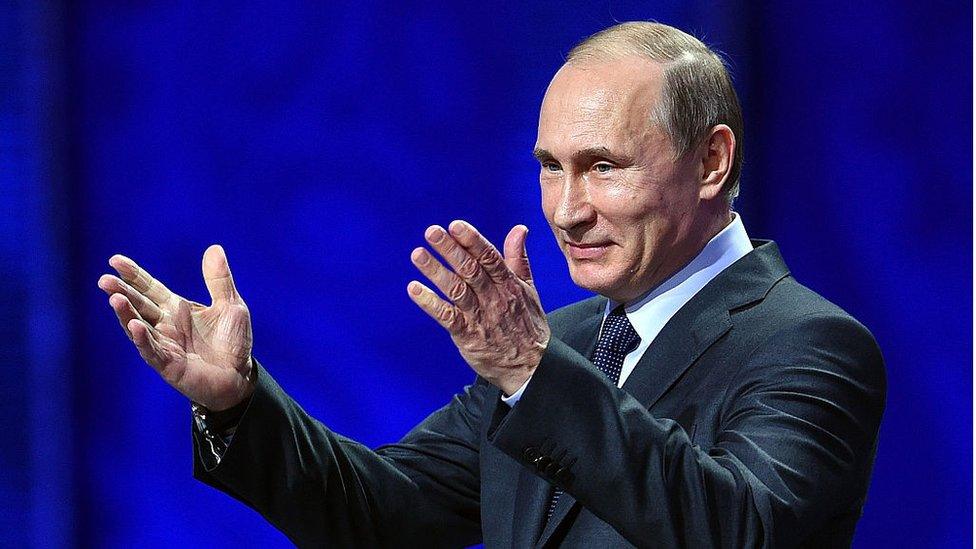US-Russia relations: Adversary or potential partner?
- Published
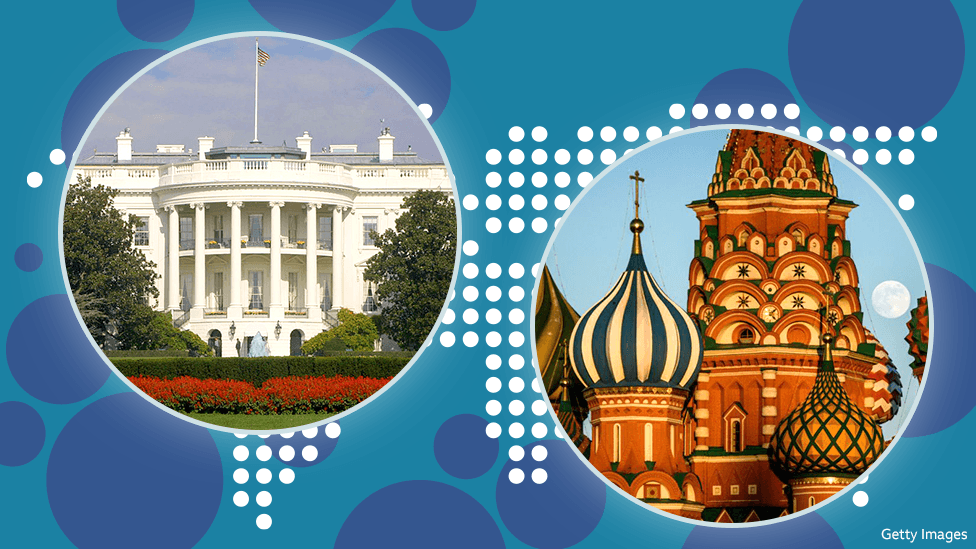
For the first time since Joe Biden took office as US president, he will meet in person with Russian leader Vladimir Putin on Wednesday.
The summit in Geneva, Switzerland, comes as both sides have acknowledged relations are at a new low.
Here's what three young Americans and three young Russians told us about the other country.

An independent who strongly aligns with progressive values, Connor is a college student who has been "very pleased" with his vote for President Biden so far.
Do you view Russia as an adversary or potential partner?
I view the Russian government as an adversary and I believe certain conditions should be met in order for the United States to consider partnering with Putin's Russia.
These conditions should require that Russia cease the imprisonment of journalists and opposition leaders. Additionally, Russia must agree to cease aggression with their southern and western neighbours.
What do you think the two countries could work together on?
With Russia and the United States having the first and second largest nuclear weapon stockpiles in the world, more joint denuclearisation treaties would be fantastic. I believe this joint mission is very important because it reduces the likelihood of accidents and creates an atmosphere of mutual trust.
In the realm of trade, as the North Pole continues to melt, this opens an extremely fast new sea route. It would be great to see the US and Russia jointly ensure the safe passage of trade vessels.
Is there anything about Russia you admire that the US doesn't have?
I greatly admire the spirit of the Russian people. They have withstood a dark and strenuous 150 years and have persevered throughout, despite all the while contending with despotic national leadership.
Americans and Russians are bonded by a history of revolution, social unrest, and vast technological progress. I hope our shared history can allow us to come to a greater understanding of one another and bring about an era of reconciliation rather than escalation.
Three things to watch as Joe Biden faces Vladimir Putin

A final year student at Moscow State University, Viktor has aspirations of working as an interpreter in the future. He believes the two countries should be working together on a range of issues.
Do you view the US as an adversary or potential partner?
Unfortunately, right now Russia and the US are seen mostly as foes. But I am convinced that our countries can and should become friends. They are two large nuclear powers, who have huge influence over their respective continents. Their cooperation and peaceful coexistence is in the interest of the whole world.
What do you think the two countries could work together on?
Russia and the US should be cooperating in as many areas as possible. The most important ones, in my view, are military security, arms control and fighting terrorism. But also in education, academic exchange programmes, technology and innovations, and fighting infectious diseases.
Is there anything about the US you admire that Russia doesn't have?
I most admire about the US their attitude towards protecting their nature - their national parks, as well as support of internal tourism and creating infrastructure to strengthen it. I also admire how they develop international contacts in the academic sphere and how skilled they are at attracting talent and investment from other countries.

Gabrielle is a moderate Republican who voted for Joe Biden, but has been "increasingly frustrated" by his administration's policies and priorities.
Do you view Russia as an adversary or potential partner?
Point blank, Russia and Vladimir Putin are intense adversaries of the United States. The global order is stronger if Russia is fiercely committed to liberal democracy, but it has proved time and time again that is not the case. Instead, it has consistently preyed upon Nato tensions and is looking to expand Russian occupation of Ukraine and the Balkans.
Continuous cyberattacks, undermining confidence in elections and acts of aggression have proven that Russia has no interest in protecting or working with any country.
What do you think the two countries could work together on?
Given the role of Russia as a leading natural gas producer, it is vital that the United States and Russia strive to work together on clean and alternative energy sources. Steps must be taken towards transition for the future wellbeing of both countries and their economies.
Over reliance on oil is both a national and regional security threat, emphasising the need for global investment and partnership on alternative clean energy sources for continued global prosperity.
Is there anything about Russia you admire that the US doesn't have?
While its citizens remain fiercely committed to democracy and freedom, the government consistently undermines them. I admire the fire and want for freedom and prosperity of the Russian people, and fiercely condemn the actions and corruption of the Russian government.
US President Joe Biden arrives in the UK ahead of the G7 summit

Alena organises media campaigns for charities. She believes Russia and the US should be partners but is sceptical of whether it is possible at present, given the tension between the two countries.
Do you view the US as an adversary or potential partner?
I am a pacifist and I'm against the escalation of geopolitical tensions, so I would say the US is a friend. If we, Russia, work at building friendly contacts with the US, and they do the same towards us, then our mutual cooperation will at the very least decrease international tension.
What do you think the two countries could work together on?
First of all, on nuclear disarmament, on the development of technology and on cooperation in space, but also in science and education.
Is there anything about the US you admire that Russia doesn't have?
I can't answer this very easily, as I follow European politics and the countries of the EU more closely.
Gauging the Russian mood: BBC Moscow correspondent Steve Rosenberg travels to the city of Krasnoyarsk in Siberia

Gordon is an aerospace engineer in Salt Lake City and a conservative voter who says he feels optimistic about the state of American politics.
Do you view Russia as an adversary or potential partner?
Currently, I see Russia more as an adversary, largely because of President Putin. It's hard to completely decipher what has been specifically ordered by President Putin and what he chooses to allow adversarial third parties within Russia to do. In either case, he bears much of the responsibility.
The recent cyber attacks, thought to originate from Russian groups, have only increased tensions.
What do you think the two countries could work together on?
I think just about the only thing the two countries can work on together is a new nuclear arms treaty that will include other nuclear powers such as China. There seems to be some willingness on that front from both sides. The difficult thing is that both countries have very different goals and allies, which often puts them at odds with each other.
Is there anything about Russia you admire that the US doesn't have?
I love the Russian culture and people. They have a rich history and still are a major influence in Europe and around the world.

A professional photographer and self-described pacifist, Katya says the two countries need to focus on fighting Covid-19 together even though they are enemies.
Do you view the US as an adversary or potential partner?
I think that Russia considers the US a foe, but the US isn't concerned about this as it has its own problems and concerns. And you can hardly have friends in politics.
What do you think the two countries could work together on?
Right now, I would say the most important thing is cooperation in fighting the coronavirus pandemic and in restoring the global economy.
Is there anything about the US you admire that Russia doesn't have?
I am attracted to the people's openness to each other and their tolerance. But I'm not saying that is completely universal in the US.
Interviews by Sam Cabral of BBC North America and Alexey Ilin of BBC Russian
Related topics
- Published25 May 2021
- Published10 June 2021
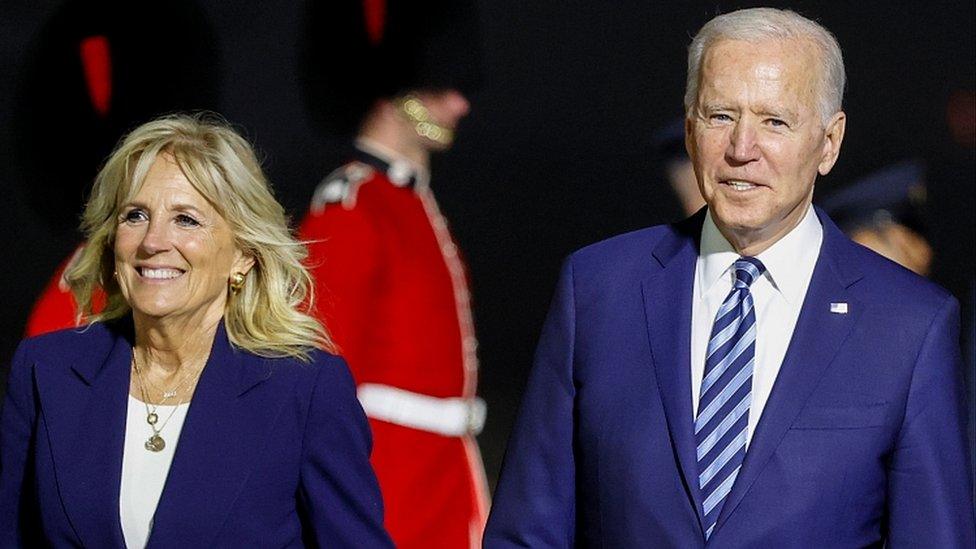
- Published18 March 2021
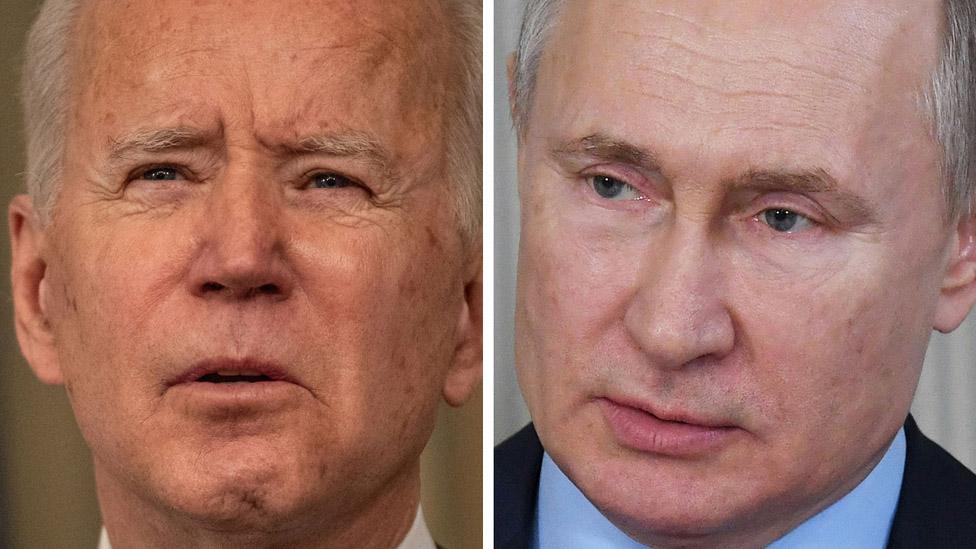
- Published3 June 2021

- Published18 April 2021
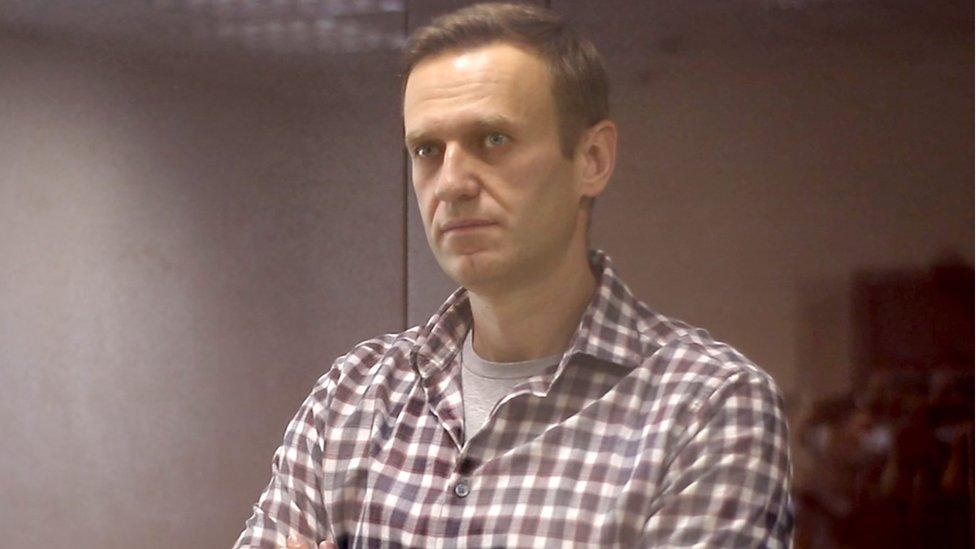
- Published5 June 2021
